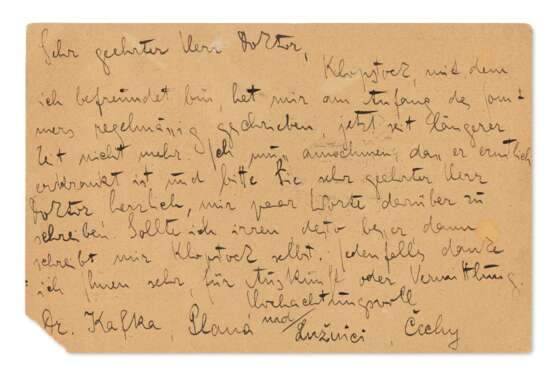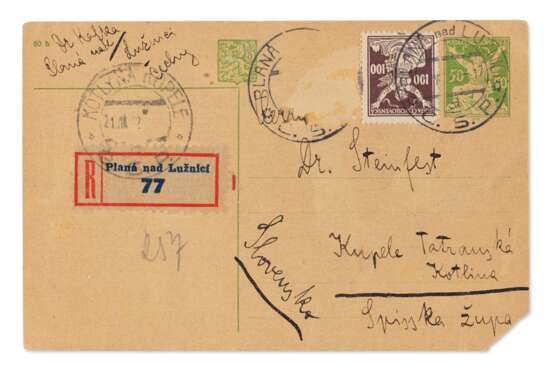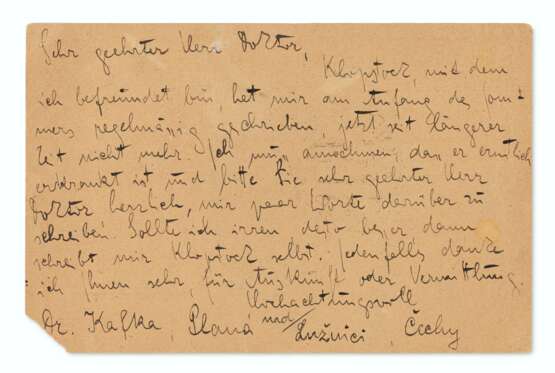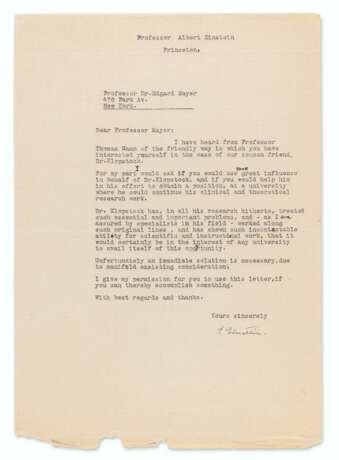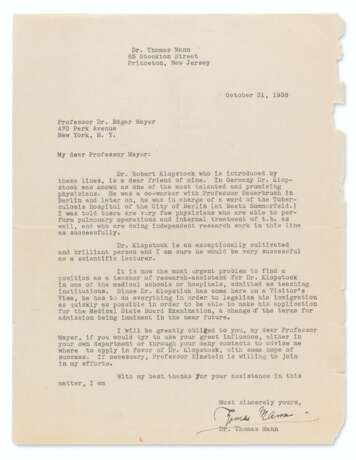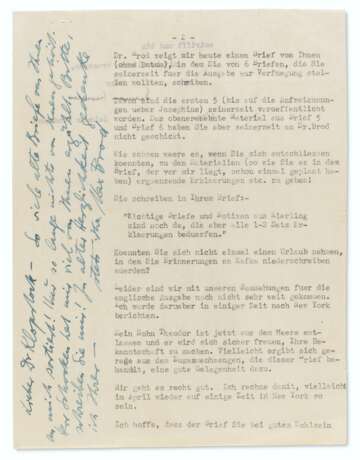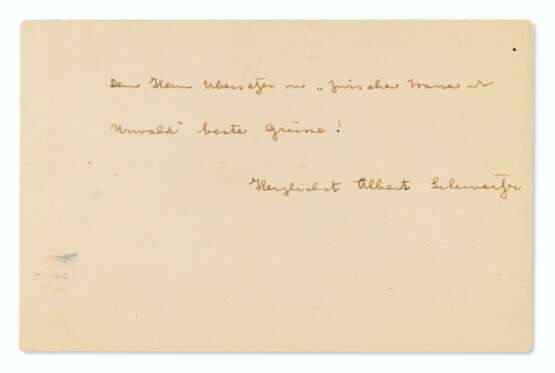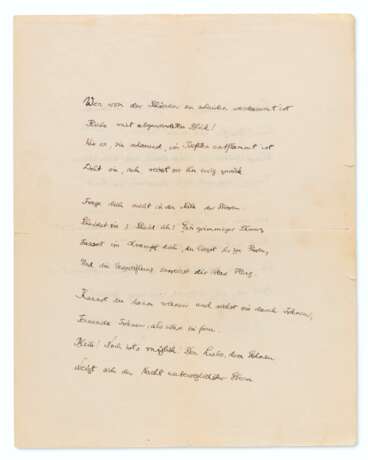ID 411507
Lot 99 | Franz Kafka to Klopstock's supervisor
Estimate value
$ 20 000 – 30 000
In German. Twelve lines in ink including greeting and signature, 90 x 139mm (small loss to lower right corner).
Kafka expresses grave concern over the health and well-being of his “guardian angel,” Robert Klopstock. Kafka and Robert Klopstock (1899-1972) first met in 1920 while the two were patients at a tuberculosis sanatorium Matliary in the Tatra mountains of Czechoslovakia (now Slovakia). When Kafka wrote this postcard in 1922, Klopstock was serving as a medical assistant under Dr. Steinfest in a hospital in Tatranská Kotlina, not far from Matliary. Kafka, worried about Klopstock’s health after failing to receive any correspondence from him, writes: “Dear Doctor, Klopstock, with whom I am friends, wrote to me regularly at the beginning of summer, but he has not written for a long time. I have to assume that he is seriously ill, and I kindly ask you, dear doctor, to write me a few words about it. If I am wrong, the better, then Klopstock will write to me himself. In any case, thank you very much for the information and help. Sincerely, Dr. Kafka.” As far as we know, Klopstock was in adequate health, and over the next two years his friendship with Kafka would deepen into a “fiercely possessive devotion” (Pawel). The ravages of tuberculosis remained a constant concern for both, to the point that Klopstock was caring for Kafka when he died in a sanatorium near Vienna on June 3, 1924. This postcard remained unpublished until 2003.
A native of Dombovar in Hungary, Robert Klopstock studied medicine at the universities of Prague, Kiel, and Berlin before emigrating to the United States in 1938. He would become the chief of thoracic services at the Veterans Administration Hospital in Brooklyn and a professor at Downstate Medical Center. See Ernst Pawel, The Nightmare of Reason: A Life of Franz Kafka (1984), pp. 414-420, 441-447.
| Address of auction |
CHRISTIE'S 8 King Street, St. James's SW1Y 6QT London United Kingdom | |
|---|---|---|
| Preview |
| |
| Phone | +44 (0)20 7839 9060 | |
| Buyer Premium | see on Website | |
| Conditions of purchase | Conditions of purchase |
